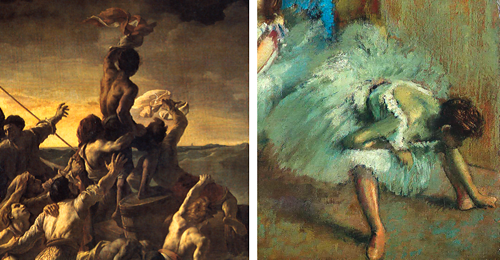Origins of Modernism:Art and Culture in Nineteenth-Century France

Cross-listed w/ FRENCH 241-001
This course examines a series of dramatic transformations in nineteenth-century French art, from the emergence of Romanticism to the advent of Realism, Impressionism, and Post-Impressionism. Our objective is to account for a selection of remarkable pictures (by Géricault, Manet, Monet, Degas, Cézanne, Seurat, van Gogh, et al.) and to assess the changing cultural circumstances under they were produced.
This is the period during which modernist art developed its characteristic strategies and behavioral patterns:
Over the course of the semester, we will explore the interrelations between artistic practices and a society radically transformed by revolution, industrialization, and the emergence of consumer capitalism. Lectures and discussion sections focus on the formal and thematic means by which artists sought to picture — and to understand — the advent of modernity.
Note: This course fulfills the LSA Humanities distribution requirement.
This course counts as a course taught in English toward the French major or minor requirements
Textbooks/Other Materials: None. All course readings are available on Canvas.
Course Requirements:
Intended Audience: Undergraduates.
Class Format: Two eighty-minute lectures and one fifty-minute discussion section per week.
Estimated Cost of Materials: Less than $50.
HISTART Concentration Distributions: Europe and the US; Modern and Contemporary